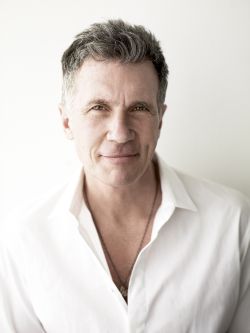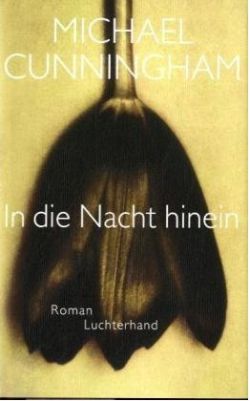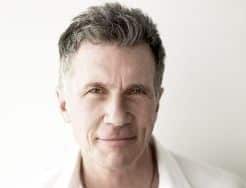Michael Cunningham is with "The hours" has become a literary world star. His new novel "Into the Night" is a great variation on "Death in Venice". Cunningham spoke to Paul Schulz for I KNOW WHAT I DO about obsession, beauty and why he has been writing about HIV-positive men for 25 years

Michael, "Into the night" tells the story of how a New York gallery owner sets out in search of real beauty in his life and falls in love with his wife's younger brother. Why did you set the book in the New York art scene?
It's always difficult for me to say why I wrote a book in a certain way. It's like this: an idea rises to the surface of my consciousness and if it's still floating around after a few months, I start writing it down. Then I just keep going. How exactly this works is also a mystery to me. I get a parcel from the muse, open it up and there it is, the book.
And that also included the topic of beauty?
Aren't we all looking for it? Well, some people don't, but I'm not that interested in them. I wanted my story about the search for beauty to be set in the New York art scene, because beauty is perceived here as something kitschy and sentimental. I wanted to have a main character who also has a split relationship with modern art like I do.
Before you started writing, you also wanted to become a painter. Did you learn anything while writing "Into the Night" about why that didn't work out?
I stopped painting for the simplest and only logical reason: I realised that I didn't have enough talent. I was drawn to writing and even though I didn't know if my talent as a writer would be greater, the process of writing felt different and better than working at the easel. When painting, I would get discouraged relatively quickly, throw away a painting and start a new one, only to lose heart again. That didn't happen to me as a young writer. And I still find it endlessly fascinating to create an entire life out of nothing more than white paper and ink. Sometimes I think that what we call "talent" is just the mental disposition to obsessively keep trying to do something.
Against this background, how can we imagine your day-to-day work?
As a writer, I also have my good days and my bad days, but I haven't asked myself for a long time how and whether it works. My relationship with writing is somewhat autistic: I just sit at my desk and sit there and sit there and sit there. And write the same sentence over and over and over again until it feels right. I don't think you can be a writer - or any other kind of artist - without this mysterious dedication to what you do.

Like many of her other works, "Into the Night" plays with motifs from a literary source. This time it is "Death in Venice" by Thomas Mann. You once read the novella "my favourite love story". Why is it my favourite?
I love "Death in Venice" for a number of reasons, including the fact that it is both a romance and an anti-romance. Aschenbach is simultaneously in love with the very physical Tadzio and with the pure idea of beauty that Tadzio represents to him. He is obsessed, a little crazy and deeply truthful, just like love itself.
In each of her novels there are HIV-positive characters, in the new one it is the dead brother of the main male character. Life for HIV-positive people has changed a lot in recent years. Is that why you write about it differently today than in "A Home at the End of the World" or "The Hours"?
As a gay man and survivor of the Aids epidemic of the 80s and 90s, I deal with this topic again and again, almost against my will. Perhaps I feel like someone returning home from a war. Writers who have taken part in a war don't really seem to be able to detach themselves from this experience in their work and I can't get away from Aids. But I don't make any particular effort to do so. Because even if I don't think novels are the most practical vehicle for the desire for social change, I think it's very important to remember that the AIDS crisis is not over.
How do you see the current situation?
Here in the States, HIV is now quite manageable for white men who can afford the medication. The situation is completely different for black or Latino men. The virus is destroying Africa. And there is an increase in the number of infections among young gay men. We shouldn't imagine that we've reached the end of the epidemic just because a relatively small group of wealthy men no longer have to die like they used to.
You don't particularly like being called a "gay writer". Why is that?
It doesn't really bother me if you call me that, I am a gay writer. I just don't want that to be the MAIN THING, and for people to niche me like that. I'm a gay writer, and a male writer, a white writer, and an American writer, which is all equally relevant to what I write. As a writer, you can only write about the world you know. And the world reveals itself to you in a certain way if you're a gay, white, male American. But you can recognise a good writer by their ability to simultaneously use and transcend that particular view of the world, by the fact that they describe the largest and most diverse world they can. I don't want my homosexuality to define me as a writer. My whiteness, my manhood and my American heritage don't concern people as much as my gayness. That doesn't seem appropriate to me.
Michael Cunningham: "Into the Night", Luchterhand, 320 pages, 19.99 euros










